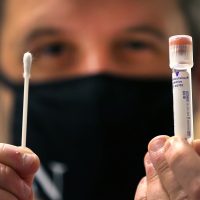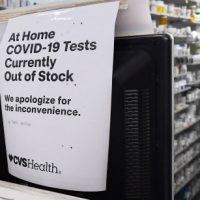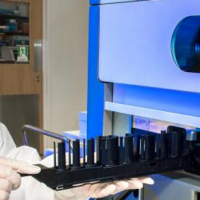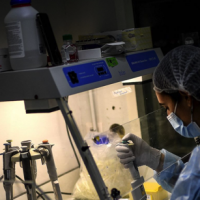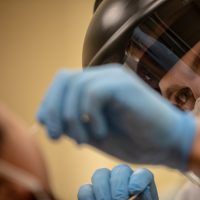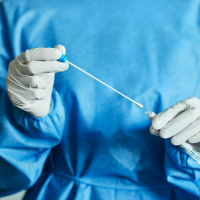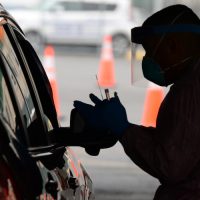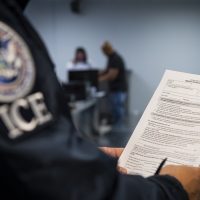Polymerase chain reaction, or PCR, tests for COVID-19 are highly accurate. People on social media, however, are circulating lists of germs that they baselessly claim will cause such tests to be falsely positive. In reality, it’s the opposite. The lists include pathogens that have been tested by the manufacturers and did not react to the test.
Misconception: Diagnosis And Tracing
Q&A on At-Home Rapid Tests
Post Comes to Premature Conclusions About COVID-19 Omicron Variant Severity
It’s not known yet whether the omicron variant causes more or less severe COVID-19 than the delta variant, although some preliminary indications suggest omicron infections might be milder. A Facebook post nevertheless claims, without evidence, that the “toxicity” of omicron is 5 times higher than delta and that its mortality rate is higher.
Sequencing Used to Identify Delta, Other Coronavirus Variants
Researchers use genomic sequencing — not the clinical tests used to diagnose patients with COVID-19 — to identify and track specific variants of the novel coronavirus, SARS-CoV-2, including the highly contagious delta variant. But viral posts try to deny the existence of the variant by misleadingly claiming there is “no ‘Delta Variant’ test.”
Posts Baselessly Link COVID-19 Tests to Vaccine Conspiracy Theory
The COVID-19 vaccines currently in use must be administered via injection. But Instagram posts baselessly suggest that Bill Gates and George Soros will use COVID-19 tests to secretly vaccinate people who haven’t yet received the shots. There is no evidence for that conspiracy theory, and scientists say trying to administer a vaccine with a swab would likely not be effective.
Viral Posts Misrepresent CDC Announcement on COVID-19 PCR Test
Scientists consider polymerase chain reaction, or PCR, tests a highly reliable tool for diagnosing COVID-19. But social media posts are misrepresenting a recent Centers for Disease Control and Prevention announcement regarding the eventual discontinuation of its own test, falsely claiming the government has conceded that PCR tests aren’t reliable.
Viral Video Misleadingly Questions Safety of Nasal Swabs
A chemical widely used to sterilize medical devices is also used for nasal swabs in COVID-19 testing. But a viral video misleadingly suggests that the swabs are dangerous — saying that the chemical causes cancer and can alter DNA. Experts say the chemical’s use in this context does not pose a threat to human health.
Story Twists Facts on Diagnosing Breakthrough COVID-19 Cases
A viral headline shared on social media falsely asserts that the Centers for Disease Control and Prevention changed testing thresholds to “virtually eliminate” COVID-19 cases among vaccinated individuals. That’s wrong. The threshold in question simply applies to whether or not there is enough virus present in a sample for further analysis.
What tests are available for COVID-19?
Tests that detect current infections with SARS-CoV-2, the virus that causes COVID-19, are known as viral tests. There are two types: a Nucleic Acid Amplification Test, or NAAT, and an antigen test.
Many of the NAATs use a molecular biology technique known as the polymerase chain reaction, or PCR, to detect even a very tiny amount of the virus in a specimen.
The PCR test takes advantage of some natural features of biology to essentially scan through all of the RNA present in a sample — such as a nasal swab — and search for the presence of coronavirus RNA.
